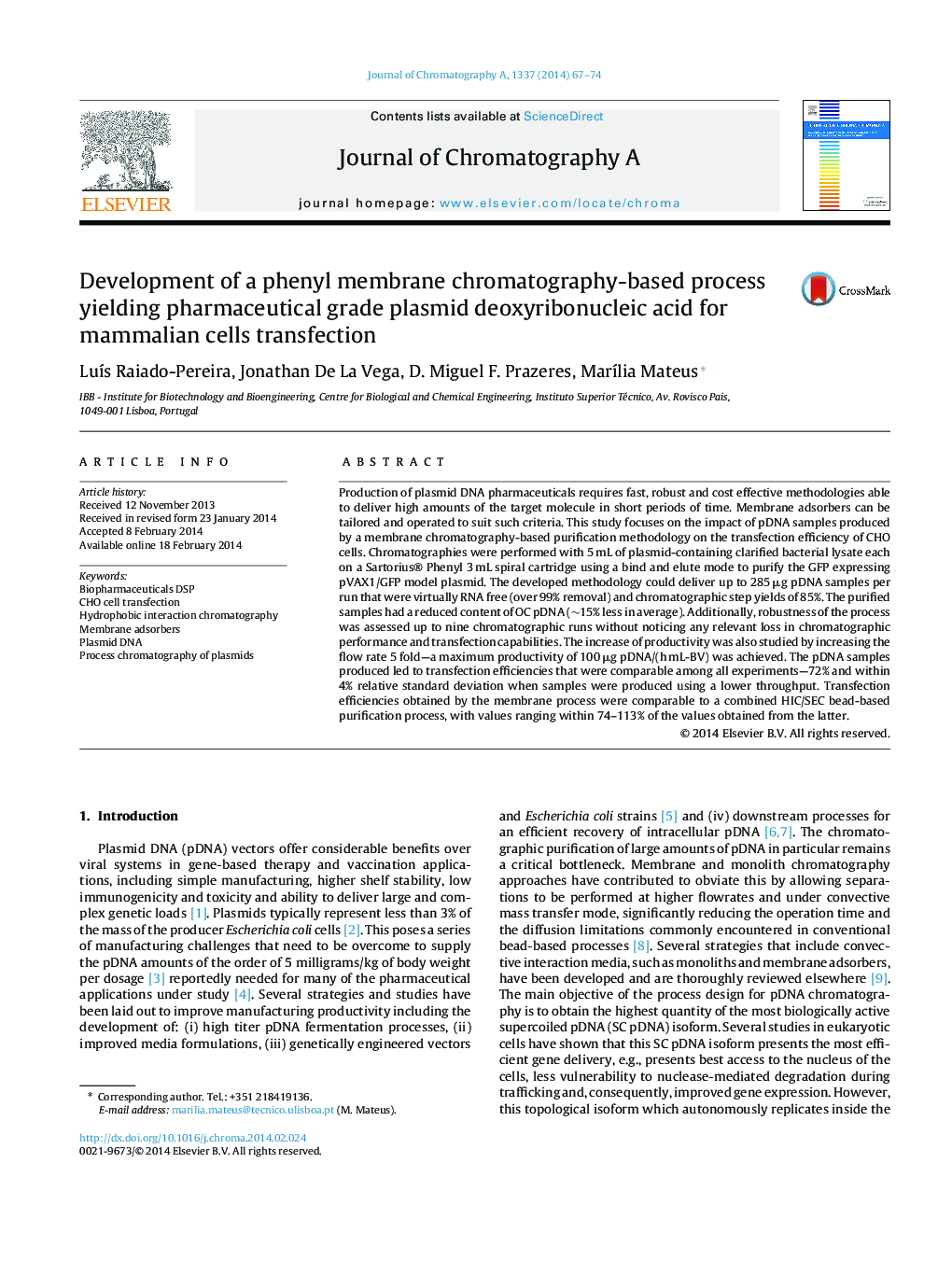| Article ID | Journal | Published Year | Pages | File Type |
|---|---|---|---|---|
| 7613524 | Journal of Chromatography A | 2014 | 8 Pages |
Abstract
Production of plasmid DNA pharmaceuticals requires fast, robust and cost effective methodologies able to deliver high amounts of the target molecule in short periods of time. Membrane adsorbers can be tailored and operated to suit such criteria. This study focuses on the impact of pDNA samples produced by a membrane chromatography-based purification methodology on the transfection efficiency of CHO cells. Chromatographies were performed with 5 mL of plasmid-containing clarified bacterial lysate each on a Sartorius® Phenyl 3 mL spiral cartridge using a bind and elute mode to purify the GFP expressing pVAX1/GFP model plasmid. The developed methodology could deliver up to 285 μg pDNA samples per run that were virtually RNA free (over 99% removal) and chromatographic step yields of 85%. The purified samples had a reduced content of OC pDNA (â¼15% less in average). Additionally, robustness of the process was assessed up to nine chromatographic runs without noticing any relevant loss in chromatographic performance and transfection capabilities. The increase of productivity was also studied by increasing the flow rate 5 fold-a maximum productivity of 100 μg pDNA/(h mL-BV) was achieved. The pDNA samples produced led to transfection efficiencies that were comparable among all experiments-72% and within 4% relative standard deviation when samples were produced using a lower throughput. Transfection efficiencies obtained by the membrane process were comparable to a combined HIC/SEC bead-based purification process, with values ranging within 74-113% of the values obtained from the latter.
Related Topics
Physical Sciences and Engineering
Chemistry
Analytical Chemistry
Authors
LuÃs Raiado-Pereira, Jonathan De La Vega, D. Miguel F. Prazeres, MarÃlia Mateus,
